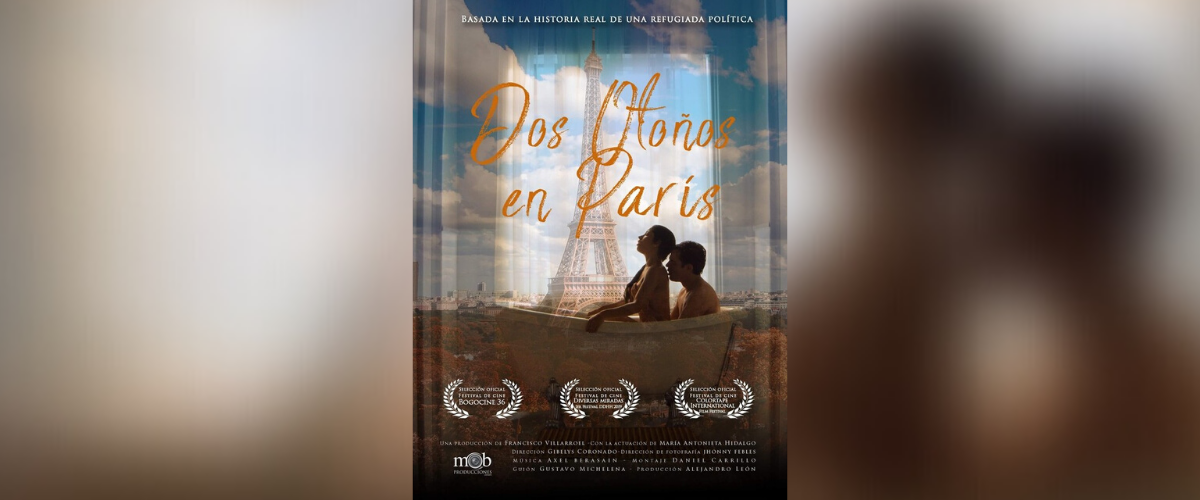
Watching ‘Two autumns in Paris’ made us realize that cinematography, in general, is revived with stories that weren’t overused in the past twenty-thirty years, and to see something this fresh and consistent made us extremely happy. In the past couple of years, the range of feature films we came across in this festival was mostly good, but very few of them went that far to tackle such a delicate subject as ‘Two Autumns in Paris’ did, with such attention to details and exquisite production.
The story of this film has that very particular detail that pushes the full cinematic potential up to the maximum, as the two leading characters are dealing with intense feelings that are expressed only at certain times, and in the right environment. Maria Teresa, played by Maria Antonieta Hidalgo, is a young woman with a dark past. Born and raised in Paraguay, she was in her early youth a member of the Paraguayan resistance against the government. One day she was taken hostage by the militia alongside some other protesters, and most of them suffered severe beatings, including one hostage that died – who we learn was Maria Teresa’s boyfriend. She is now a refugee, coping with the loss of such an important man in her life, reason why the ghosts of the past are continually haunting her.
Antonio, played by Francisco Villarroel, arrives in Paris after some series of unfortunate events in his life. A fresh start is everything he wished for, and with a little bit of luck, he has it. What’s interesting in this film is the relationship between the two characters as both of them are striving to find peace and a safe ground to refresh their lives, and they both see it at first, but as they get comfortable, the past comes back in small doses, giving them a constant scare. The production as a whole is definitely worth talking about as we have had the whole movie under the microscope, and nothing flagrant appeared in front of our eyes. Everything stands precisely where it should be: the edit is spotless, cinematography shines from the first frame to the last ending credit, and the score pushes the overall potential to straight perfection!
The central theme of this film is love as a way of healing and redemption. Maria Teresa can be seen as another Beatrix Kiddo, the Bride from ‘Kill Bill’, the woman warrior who tried to get back at the ones that messed with her life. Antonio, on the other hand, is the yang from this ying-yang combination, as he is the reverse of the medallion, the face of the law that is in theory in total opposition with Maria. Their chemistry is more than exciting, and it is worth being considered a future reference for other filmmakers approaching such a theme.





